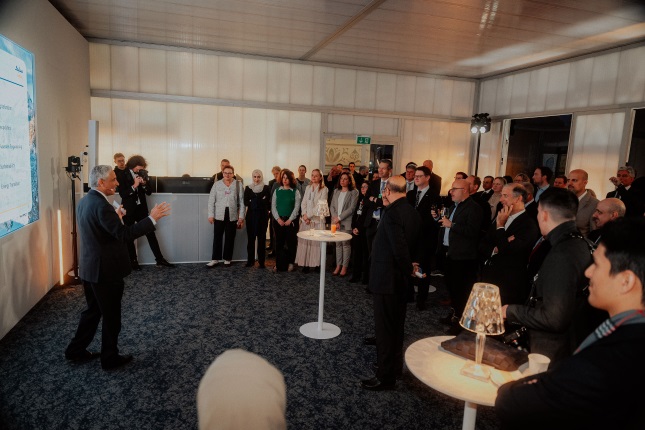SABIC ICEHOUSE™ RETURNS TO DAVOS FOR THE 8TH TIME AS AN ICONIC HUB SHOWCASING SUSTAINABLE INNOVATION & COLLABORATION

SABIC, a global leader in the chemical industry, is showcasing its iconic ICEhouse™ now for the 8th year during the World Economic Forum annual meeting taking place in Davos, Switzerland from 15-19 January, 2024.
In line with this year’s theme of “Rebuilding Trust”, this year SABIC has extended the program being hosted in the ICEhouse, to include events focusing on trending topics such as the challenges facing the entrepreneurial and start-up ecosystem as they look to develop technology and solutions on the path to reaching net-zero.
During the reception held with global business figures and policy makers, Abdulrahman Al-Fageeh, SABIC CEO said, “Our world is facing global challenges that will require, amongst other things, new ways of doing business and technological advances at unprecedented levels. At SABIC, we are proud of our achievements to date, creating value for our customers and partners, and broader society, via our strategy of innovation for sustainability. The Annual Meeting in Davos provides a pivotal platform for global discourse and to help connect the dots in our complex world.”
The ICEhouse will also host discussions and dialogue with other SABIC collaboration partners such as with the recently relaunched Global Impact Coalition, the CEO-led chemical industry initiative, formally incubated by the World Economic Forum, and whose focus is on accelerating the development and upscaling, of low-carbon emitting technologies for chemical production and related value chains. With a focus on innovation, partnerships, and the development of net-zero production methods, the new Global Impact Coalition can make an important contribution to carbon neutrality and sustainable growth.
SABIC’s Innovation for the Circular Economy (ICEhouse), designed by architect William McDonough is a distinctive concept-structure designed to demonstrate new possibilities for building in closed-loop carbon systems that reduce energy and material waste. A modular building that can constructed and disassembled over-and-over again, it is a pioneering example embodying the Circular Economy in action.





 Email: info@cyber-gear.com
Email: info@cyber-gear.com